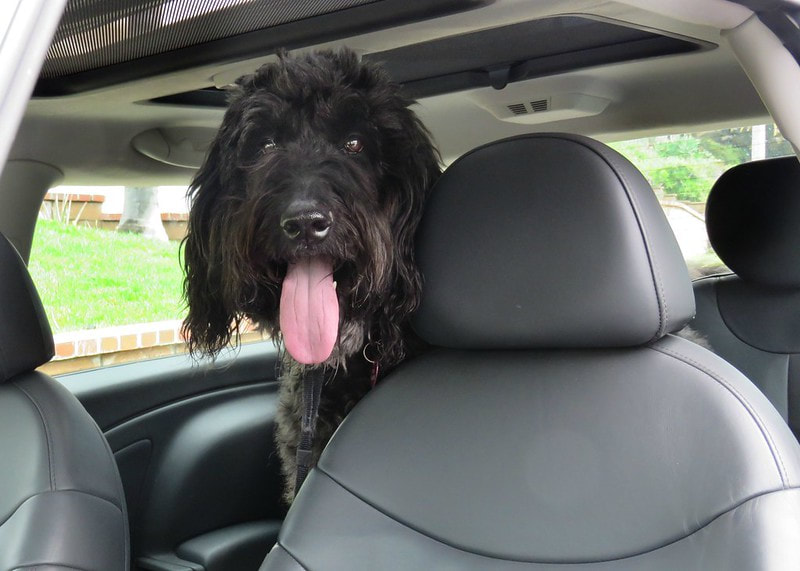|
With a rainy spring behind us, we’re pumped for warm weather! At Concord Animal Hospital, we know that means it’s time to prepare our clients with pet health and safety advice apropos to the coming hazy, hot, and humid season. What Is the Biggest Warm Weather Danger for Pets? As the thermometer starts to climb, the biggest danger posed by the warm weather for pets is hyperthermia, or heat stroke. Activities you might normally do at other times of year--an exuberant session at the dog park with an active pup, taking a longer walk than usual with an older or overweight pet, or leaving your four-legged friend in your car while you do a few quick errands--can put them at serious risk for heat stroke.
What Are the Risks of Heat Stroke for Your Pet? Damage from heat stroke can range from impacted eyes or GI tract, to brain damage and death. Dogs considered at higher risk for heat stroke include:
Time is of the essence and mortality rates in dogs with heat stroke are a lot lower when their owners cool them before they arrive at the hospital." How Can You Help a Pet with Heat Stroke? With the risk of heat stroke especially in dogs on the rise, Concord Animal Hospital’s Katherine Wilson sat down with Dr. Caleb Murphy, Emergency Clinician at BluePearl Specialty Hospital in Waltham to get his suggestions for first aid steps you can take to save your dog’s life. BluePearl is a 24-hour emergency veterinary hospital and one of the emergency hospitals we suggest to our patients for urgent medical assistance when our office is closed. Katherine: Can you describe what happens to a pet suffering from heat stroke? Dr. Murphy: Heat stroke, also called hyperthermia, is a failure to regulate the body’s temperature. A pet suffering from heat stroke is having an inflammatory response which leads to multi-organ dysfunction. This overheating can be a result of the pet’s own activity or metabolism or heat gained from the environment, such as on a hot day or in a warm car. Katherine: How does hyperthermia effect a dog? Dr. Murphy: Dogs lose 70% of their body heat through the skin. But when the air temperature is higher than their body temperature, dogs also lose heat through evaporation from their respiratory tract via panting. If they are suffering from hyperthermia, your dog will begin panting excessively to maximize heat loss. Internally, blood will increasingly circulate to the skin at the cost of blood flow to the internal organs, which has the potential to cause long term damage.
Katherine: What can a dog owner do if they think their dog is suffering from hyperthermia? Dr. Murphy: A lot! Time is of the essence and mortality rates in dogs with heat stroke are a lot lower when their owners cool them before they arrive at the hospital. In one study, mortality rates were 50% in dogs in the total sample, but 100% of dogs that were cooled by their owners before being admitted to the hospital and brought in to a hospital within 90 minutes of exposure survived.* If you think your dog is suffering from heat stroke, you need to get to your veterinarian immediately. Before you go, wet the dog with cold water with a hose or in a bath or sink. I advise against putting wet towels on the dog, because the towels will quickly become warm and prevent the transfer of heat away from the dog’s body. If you have ice packs, place them in your dog’s armpits and around the belly after placing your dog in the car. Turn the air conditioner on high or roll down the windows and call the vet to let them know you’re coming in while you are on the way. Stay Safe in the Heat When the sun is shining, we all want to enjoy the warm weather with our pets! By making seasonal adjustments to our activities, we can help prevent overheating and heat stroke in our pets. Doing things such as always bringing a water bottle and putting out fresh water for your pet, avoiding walks during the hottest times of day, and leaving your pet at home and not in your car when you go out to shop will go a long way to keeping your pet safe. And if your dog exhibits any of the symptoms of heat stroke noted above:
Special thanks to Dr. Murphy and BluePearl for contributing to our efforts to keep our patients happy and healthy!
*Heat Stroke in Dogs, The Hebrew University of Jerusalem, Israel. Journal of Internal Veterinary Medicine. 2006. Comments are closed.
|
|
OFFICE HOURS:
Monday-Friday: 8:00 am to 6:00 pm Saturday: 8:00 am to 12:00 pm |
CONTACT INFORMATION:
Concord Animal Hospital 245 Baker Avenue Concord, MA 01742 Phone: (978) 369-3503 Fax: (978) 371-9748 [email protected] |
JOIN OUR PACK!
Sign up for our monthly newsletter, the Paw Press for hospital news, pet care tips and cute pet photos! |
Copyright © 2022


